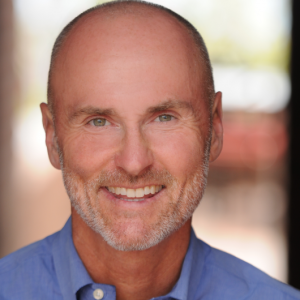5 Questions with Allison Schrager: A Conversation from the Corner Booth

We recently had the pleasure of sitting down with esteemed economist and author Allison Schrager. She’s one busy woman. Since the publication in Fall of 2018 of her book An Economist Walks Into a Brothel– a Financial Times Book of the Month pick (and an ALEX pick as well)- you may have heard her on such shows as Planet Money, Yahoo Finance, MSNBC, the Bloomberg Businessweek podcast and more.
Over the course of our lunch, we had a wide-ranging conversation about such subjects as the riddle that is retirement economics, the possibilities offered by the retirement-focused SECURE Act, Kentucky stud farms and working in your retirement years. Here are some excerpts of our conversation, edited for clarity.
ALEX.fyi:
Thanks for taking the time to meet with us. In your book, you describe the process of getting your Ph.D. in quantitative economics and being a 23-year old captivated by the concept of retirement. You described thinking of it then as “the purest and most beautiful of all economic problems.” How do you consider it now?
AS:
You picked the problem you were going to work on and for me, it’s like this distillation of everything economics was, which is, “What is the optimal allocation of scarce resources?” but it was based on one individual over their lifetime. And it provides me some sort of comfort in a weird way, that the more I know I’ll never really figure it out, but I’ll get better. Or I’ll even look back at what I thought ten years ago and realize how wrong I was. I think about the whole economy and pushing this problem. I have been so lucky to work with so many smart people on this and none of us feel like we’ve fully figured it out.
On personal finance and its challenges…
AS:
I think there was a book a couple of years ago that came out and tried to say that personal finance is easy… and it seems crazy to me because I feel like I’ve been working on this my whole career with the smartest people I could find and none of us had figured it out. Yet people are like, “Well, a notecard or ten bullet points can be everything you need to know about personal finance.” I think because everyone does it, people assume it must be simple.
ALEX.fyi:
Have you ever felt like you’ve been the recipient of man-splaining as you’ve gone about doing what you’ve been doing with the book? Like at the stud farm (for the chapter on Diversification), it seems like there would be all sorts of types who might feel comfortable man-splaining to a first-class economist.
AS:
Well with the stud farm I had no idea about what I was doing, because I didn’t know anything then about horse breeding! So maybe they would have man-splained, but what I would do when I’d go into these places was learn. I would go in and I would fill in the economics later, decidedly in my head. They had no idea who I was. I just sort of showed up and I’m like, “Teach me about horse breeding.” I get more of the man-splaining stuff when it’s economics and finance. But those are things that I feel like I really do understand.
ALEX.fyi:
It’s pretty amazing that you’ve worked closely with Nobel Laureate Robert Merton. Are there any catch-phrases of his that have always stuck with you? Anything he said that resonates with you still?
AS:
It’s hard to say catch-phrases. When I was figuring out what the book would be, I sat down with him for a couple of hours to go over the outline. Before I did the stories I had figured out every financial concept I wanted to cover. And that was the original outline. I didn’t initially have risk-free at all- I mean I brought up risk-free in various chapters, but he was very adamant that the first chapter had to be about the risk-free rate because that’s the foundation of all financial problems.
ALEX.fyi:
On page 42 of your book, you say this: “An annuity is the price of a risk-free retirement.”
That was something that struck home for me because one of the things that I find challenging in the financial world is that sometimes there aren’t any benchmarks and that’s bad. And sometimes there are benchmarks and people don’t understand them and the benchmarks are imperfect. If you have a benchmark, perfect or imperfect, you can go out and you can actually help people use that benchmark as a means to give themselves permission to go ahead and take action. I think that is extremely valuable. And you alluded to that in your book when you talked about Black Scholes. You said it’s not perfect, but everybody can agree on this one set of the methodology of determining value, and you can deviate as you see fit from there.
AS:
Yeah- and you have a sense of how things are. Certainly with retirement, I think the fact that we’ve had the wrong benchmarks has really made the problem- and it’s a hard problem to begin with- a lot harder…The fact that benchmarks are not income-based…I think it’s just thrown everyone off, I mean that’s another good thing about the SECURE Act. Considering I had two years of bi-weekly conversations with (Eugene) Fama and (Kenneth) French on how to measure long-term annuity prices, that I don’t know how this is going to be measured. I’m curious; I feel like that’s going to be harder than people realize, but it’s such an important step.
ALEX.fyi:
There was an article in a magazine that I read that specifically criticized the presence of that [the monthly income] number in the bill. It said that number plays into the hands of the insurance companies…That number is the most important deciding point in determining what you do in retirement…You start with that. But again, that’s where the education needs to be. People need to pull back from this idea of life insurance companies as good or bad…They provide a [valuable] service and you have to figure out whether that service is available at a price that you appreciate. One way or another.
AS:
Well, you don’t have to buy an annuity; you could always come up with some sort of laddered bond portfolio. I mean, that’s harder and you’ll get less money. But you should still think about it as an annuity price because it’s the same thing. And that’s too bad that he [the author] wrote that. I’ve been worried about backlash from this [bill]…because except for those people, I can’t remember any time that legislation has passed that everyone is so excited about. I can’t remember the last time that legislation has passed that every expert thinks is a good idea. If I were to come up with “Alright, let’s have the starting point to make retirement better,” this would be it.
ALEX.fyi:
What do you think is missing from the SECURE Act?
AS:
In a perfect world, I’d like it to be a default. That might be tough but I think it’s a good start. I always want to say to people like this guy whose magazine piece you read, “What do you think people should do when they retire? If it’s so easy and you don’t need an insurer involved, how much would you spend on Day 1?” And they’re always like “Well I don’t know, like 4%.” Well, 4% on what day? What about next year?
On working into your retirement years…
AS:
I’m sort of opposed to this discreet withdrawal from the labor force. Part-time work into your 70s makes a lot of sense for people.
ALEX.fyi:
It’s hard to do now, isn’t it? A lot of people are saying, “I’ll work longer,” and it would be great if they could, but I’m wondering if the jobs are there or readily available for people in that age range.
AS:
Well there should be. I feel like it’s a policy failure or some sort of regulatory failure that they’re not…[given] some research about how much money it costs to keep a full-time person over 65 on staff. But they didn’t need benefits anymore- they’ve got Medicare- so really what they should do is put these people on contracts. They could work more flexibly, and almost all of the sort of behind-the-scenes compensation goes away, and they still get their wisdom.
A couple of years ago I was talking to my father, who’s a lawyer and is self-employed, so he has a little bit more flexibility. He was complaining about some of his clients, and I was like, “You know, why don’t you just get rid of the clients you find aggravating? And just have a smaller practice with the people you find gratifying to work with? You don’t really need to be working full time anymore and you don’t want to retire entirely, so why not just do the parts of the job you like?” And then he did it. He did it and he’s so much happier.
Even if you work for a big company, it would be better for both. And you have that experienced worker maybe coming in 2 or 3 days a week and you put them on projects where their wisdom is so valuable.




